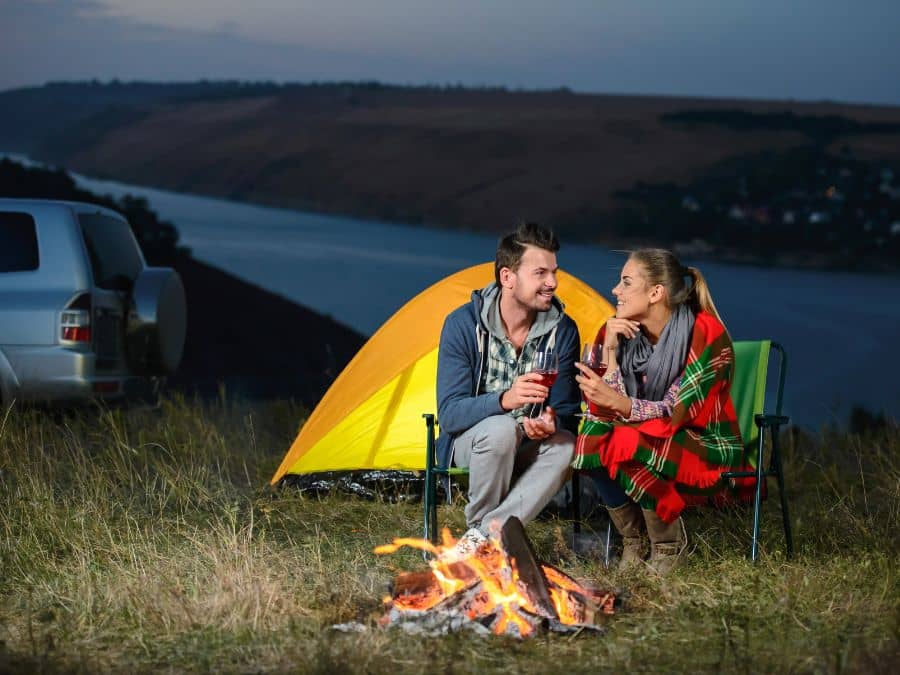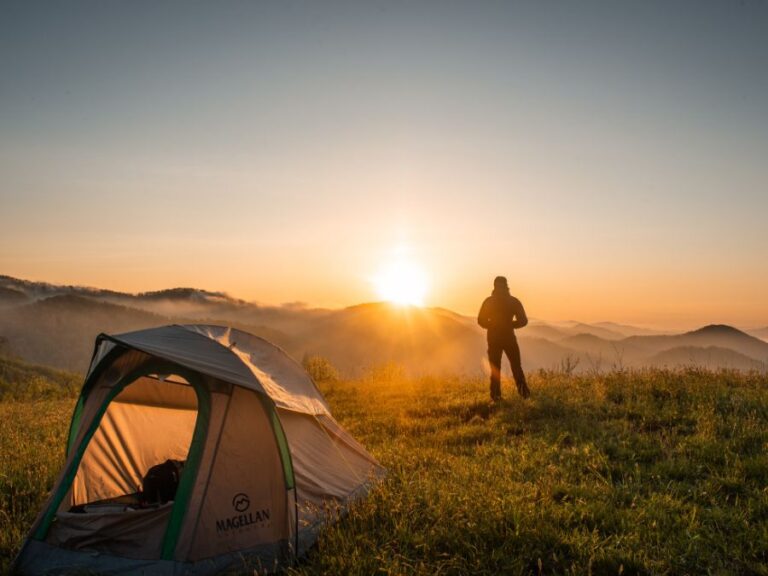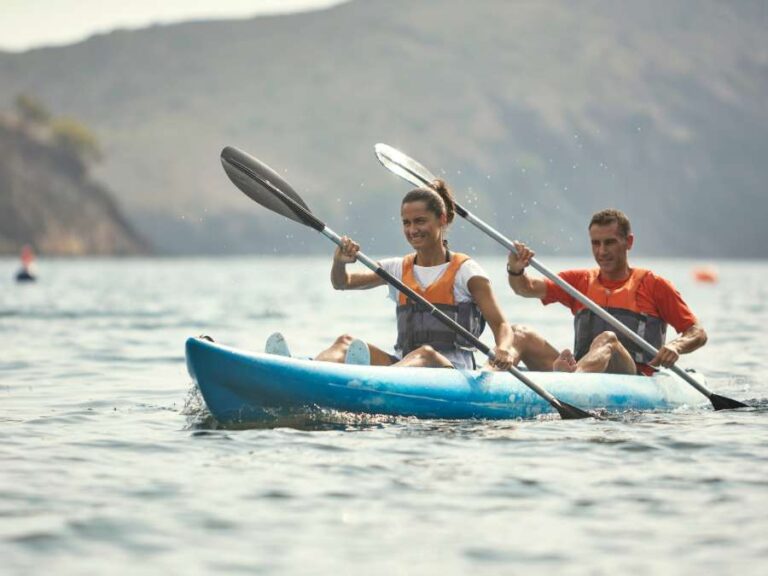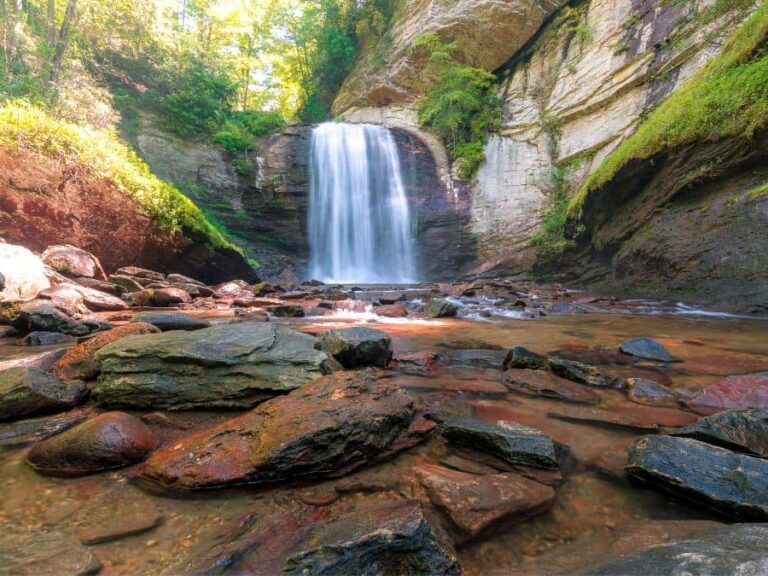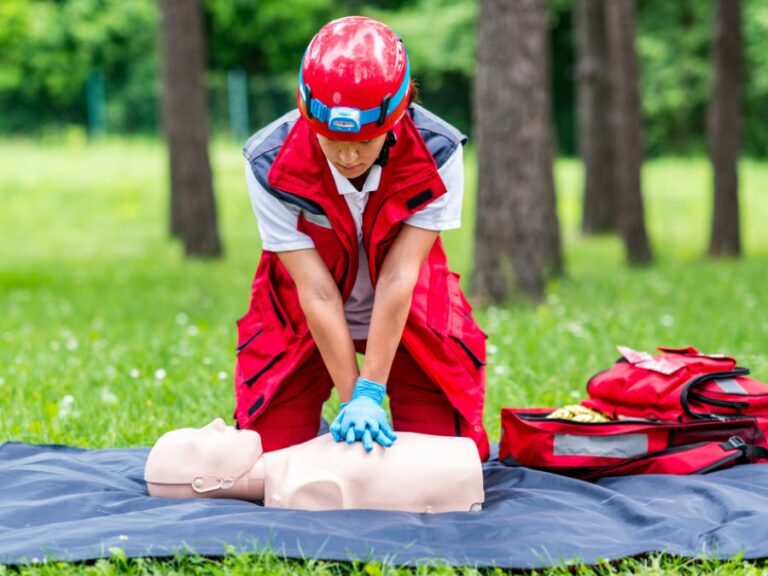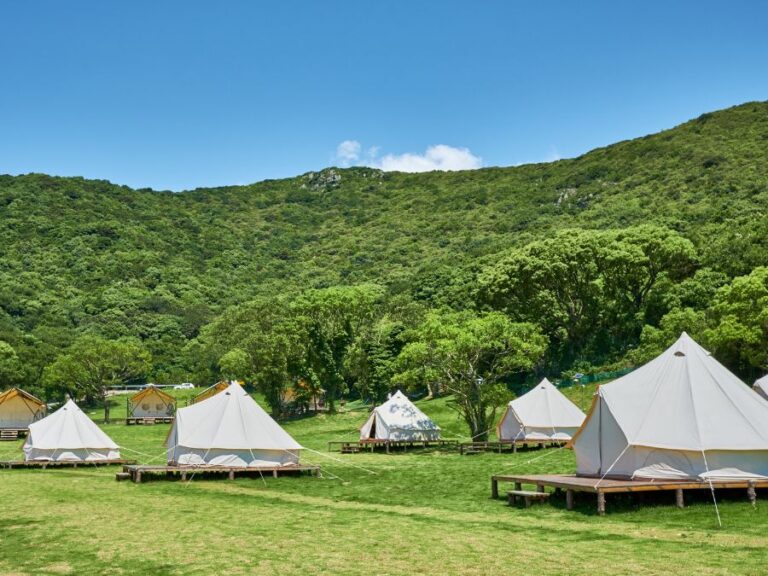Which Outdoor Adventure Suits You Best?
Whether you’re an avid outdoors person or just looking for a way to escape the hustle and bustle of everyday life, camping is a great way to spend some time away from it all. However, not all camping experiences are created equal. When it comes to camping, there are two main types: car camping and backpacking. Car camping is a type of camping where you drive your vehicle directly to your campsite, typically located in designated campgrounds with amenities such as restrooms, fire pits and picnic tables. Backpacking, on the other hand, involves hiking into the wilderness carrying all necessary gear on your back to set up camp in remote locations. While both options involve spending time in the great outdoors, there are key differences between car camping and backpacking that make each experience unique. Understanding these differences will help you decide which option is best for your next outdoor adventure.
The Key Differences Between Car Camping and Backpacking
The primary difference between car camping and backpacking lies in the level of comfort and accessibility offered by each option. Car camping is often more comfortable because campsites provide access to amenities such as electricity, bathrooms and running water. In contrast, backpackers must be self-sufficient as they hike into remote areas with limited access to basic necessities.
Another factor that sets car camping apart from backpacking is accessibility. With car camping, campsites are typically located near roads or highways making them easily accessible for families or groups who have members with limited mobility or children who may not be able to hike long distances with heavy gear on their backs.
When it comes to packing for a trip into the outdoors whether by car or backpacking one must consider how much gear they need based on how many days they plan on being gone or what type of activities they plan on doing during their trip among other factors depending on which option they choose. Understanding the key differences between car camping and backpacking can help you choose the right type of camping experience for your next adventure.
Car Camping
Car camping is the perfect way to explore the great outdoors without sacrificing comfort. Essentially, it’s a type of camping that involves driving your car directly to your campsite.
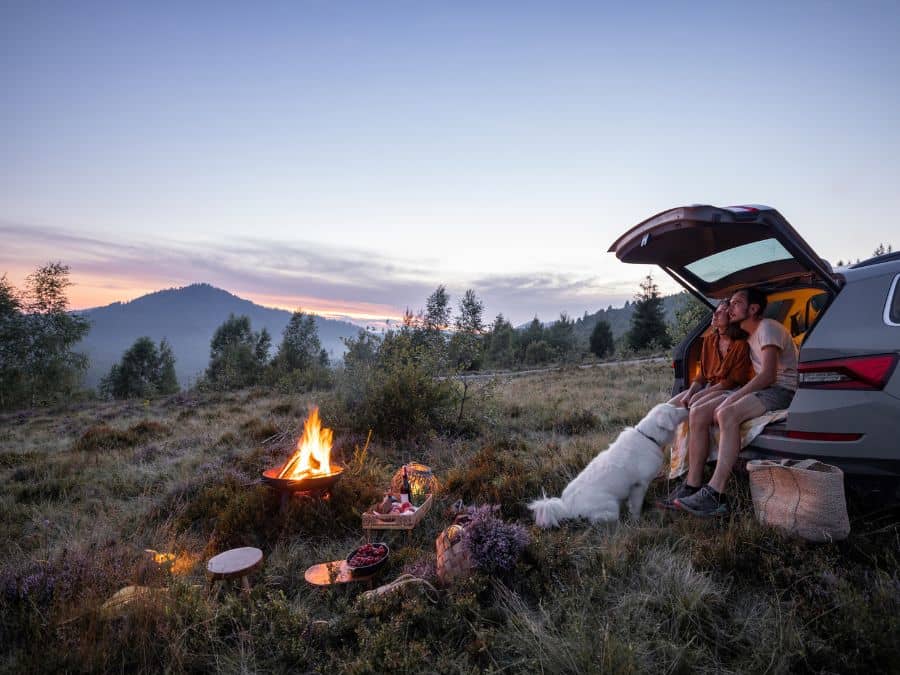
This means that you can pack as much gear as you like without having to worry about carrying everything on your back. Think of it like a mini home on wheels that you can take anywhere.
Advantages of Car Camping
The biggest advantage of car camping is convenience. Since you can park directly at your campsite, there’s no need to hike in or worry about carrying all of your gear on your back. This makes it a great option for families with young children or those who may have physical limitations that make backpacking difficult.
Additionally, car camping provides more comfort than backpacking because you have access to amenities such as a cozy sleeping bag, air mattress, and pillows. You can even bring along folding chairs and tables for meals and relaxing outside.
Disadvantages of Car Camping
While car camping has its advantages, it does come with some downsides as well. One disadvantage is that since campers are not required to hike in, many campsites can be crowded and noisy since they are easily accessible by car. Another potential downside is the limited wilderness experience offered by car camping.
Unlike backpacking where hikers traverse through rugged terrain and get up close with nature’s most beautiful landscapes – car camping provides only limited exposure to nature. Overall, while there are some disadvantages associated with this type of camping – we believe that the benefits including convenience and comfort outweigh these minor drawbacks for many people who desire an outdoor experience without too much discomfort or exertion involved!
Backpacking
When it comes to camping, backpacking is the purest form of wilderness experience. It involves carrying everything you need on your back and hiking to a remote location where you will set up camp. The goal of backpacking is to immerse oneself in nature completely and disconnect from the modern world.

One of the biggest advantages of backpacking is the immersive wilderness experience it provides. Backpackers get a chance to explore remote areas, observe wildlife, and sleep under a canopy of stars.
The sense of adventure can be intoxicating, as every step leads deeper into uncharted territory. However, backpacking also comes with its own challenges and disadvantages.
The physical demands can be quite intense, requiring hikers to carry heavy loads over uneven terrain for hours on end. Additionally, specialized gear is needed such as lightweight tents, sleeping bags, cooking stoves and equipment that can withstand harsh environments.
Another downside is that backpackers often have limited flexibility when it comes to choosing campsites due to park regulations or environmental concerns. Backpackers must also pack carefully by bringing only essential items since they have limited space in their backpacks.
While backpacking offers an unparalleled experience for those who love nature and adventure, it requires careful planning and preparation due to its physical demands and need for specialized gear. Yet the reward of “roughing it” in nature’s purest form makes all these downsides fall by the wayside making every trip memorable!
Car Camping vs. Backpacking
Accessibility to Campsite Locations: The Great Divide
One of the most significant differences between car camping and backpacking is the accessibility of campsite locations. Car camping generally takes place in designated campsites that are easily accessible by road. These campsites often come equipped with amenities such as fire pits, picnic tables, and restroom facilities.
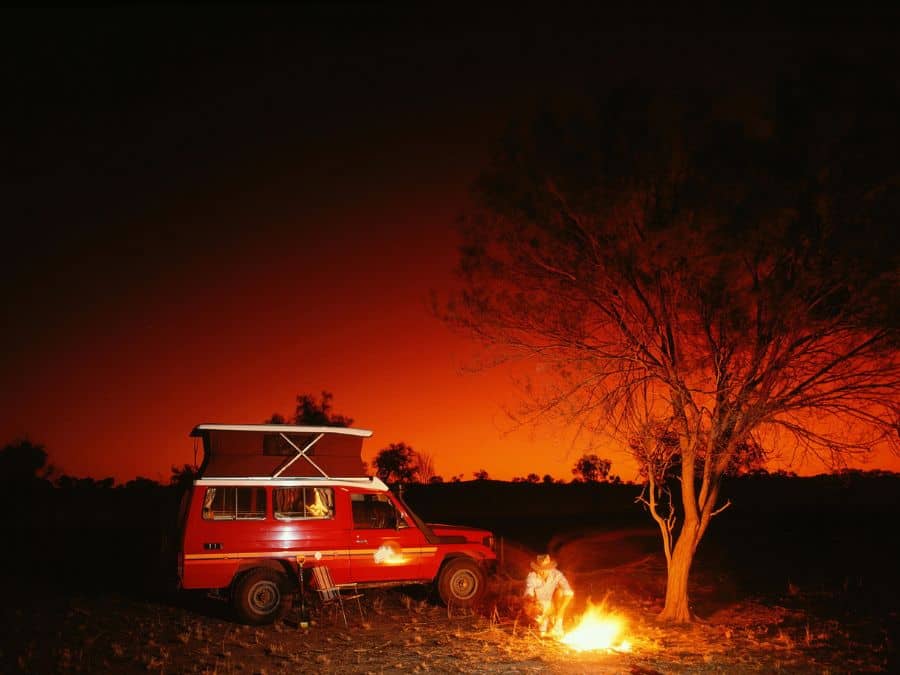
They offer a high level of convenience for those who want to get away from the city but still enjoy some creature comforts. Backpacking, on the other hand, allows you to access remote wilderness areas that are inaccessible by car.
This means you can experience more solitude and privacy while immersing yourself in nature. However, it also means that you will need to do some research and planning ahead of time to find suitable backcountry campsites.
Amount/Type of Gear Needed: Less is More or More is More?
Car camping typically requires more gear than backpacking because you have a vehicle at your disposal. You can bring along everything from a portable toilet and extra blankets to a portable grill and a cooler full of food. However, all this gear can take up valuable space in your vehicle, making it difficult to pack efficiently.
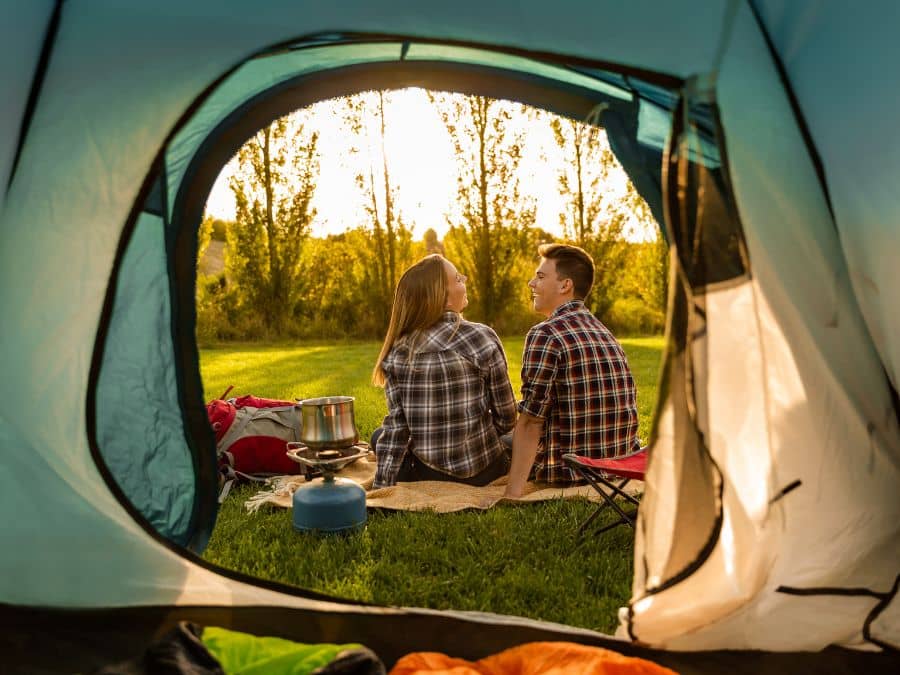
Backpacking requires less gear overall because you have to carry everything on your back. This means you’ll need items like lightweight tents, sleeping bags, cooking equipment, water filters/purification systems etc., which are designed for portability rather than luxury.
Level of Comfort: Finding Your Sweet Spot
Car camping offers a higher level of comfort than backpacking because you have access to amenities such as comfortable beds or air mattresses that make sleeping easier during the night. There’s also room for larger tents where people can stand up or stretch out without feeling cramped. However, backpacking offers its unique brand of comfort, too.
Backpackers often experience a deeper sense of relaxation and connection with nature due to the absence of modern amenities. There’s something to be said for sleeping under the stars and listening to the sounds of wildlife as you drift off to sleep.
Type/Amount of Food to Bring: The Battle Between Convenience and Nutrition
Car camping allows for more flexibility in food options since you have access to supermarkets, grills, refrigerators etc. This means you can bring along pre-cooked meals or ingredients that require minimal preparation time. You can even indulge in junk food or other treats that might be difficult to pack on a backpacking trip. Backpacking requires more planning in terms of food since everything has to be carried on your back.
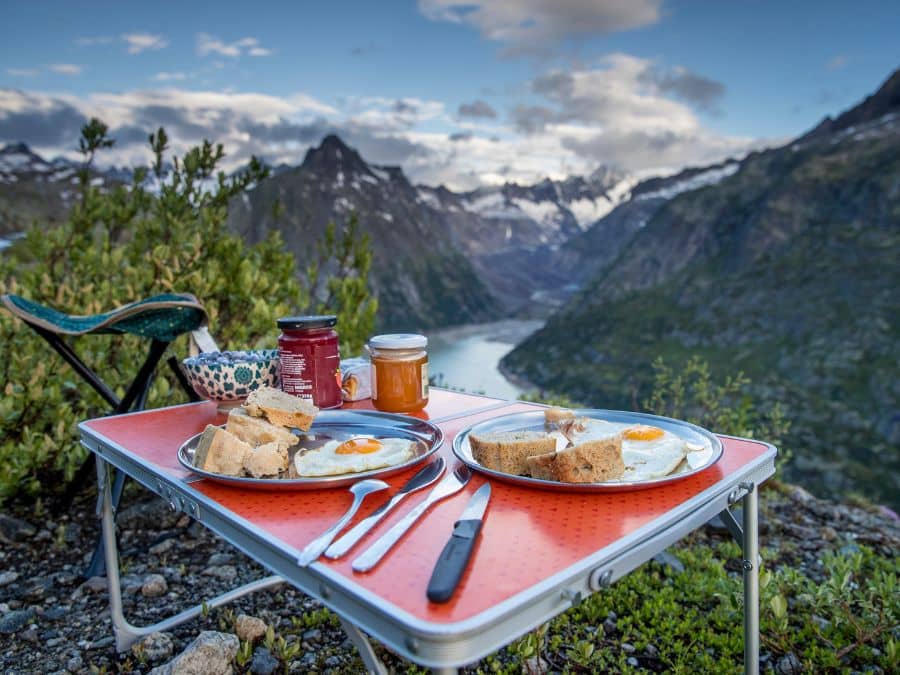
This means selecting lightweight, non-perishable food items like dried fruits/nuts, energy bars, and dehydrated meals that are easy to prepare. However, this doesn’t mean you have to skimp on flavor or nutrition – there are plenty of delicious and nutritious backpacking meal options available today!
How to Choose Between Car Camping or Backpacking
Factors to Consider When Deciding Between the Two Options
Choosing between car camping and backpacking can be a difficult decision, especially for those who are new to camping. There are several factors that you need to consider before deciding which option is right for you.
Firstly, you need to think about accessibility. If you’re looking for a quick and easy outdoor getaway, car camping might be a better option for you.
Car camping involves driving your vehicle up to the campsite and setting up your tent. On the other hand, backpacking requires hiking into remote areas with all of your gear on your back.
If you’re willing to put in some extra effort, then backpacking can provide an immersive wilderness experience that car camping simply cannot match. Secondly, consider how much gear you want or need for your trip.
Car camping allows campers the luxury of packing more gear due to easier transportation options. This means that carrying bulky items like chairs or coolers won’t be an issue when car camping but can weigh heavily when backpacking .
Backpackers must carry everything they need in their packs while hiking through challenging terrain– so make sure you pack light! Assess how much comfort means when it comes time to relax at night after a day of exploring outdoors and adventuring.
Are creature comforts like air mattresses and pillows important? If so, then car camping might be preferable as it provides more opportunities for sleeping comfort than does backpacking– where sleeping pads are comparatively thin or non-existent.
Personal Preferences That May Influence Decision
Ultimately, personal preferences will play a big role in determining whether car camping or backpacking is right for you. If social interaction is important , car camping is generally better suited in terms of shared spaces like campsites with amenities such as grills , picnic tables and even bathrooms.
Additionally, Car camping is generally a more casual atmosphere where you can relax with family or friends. Alternatively, backpacking offers a sense of adventure and solitude that some people crave when getting away from the crowds- but be aware that backpacking requires physical exertion and preparation.
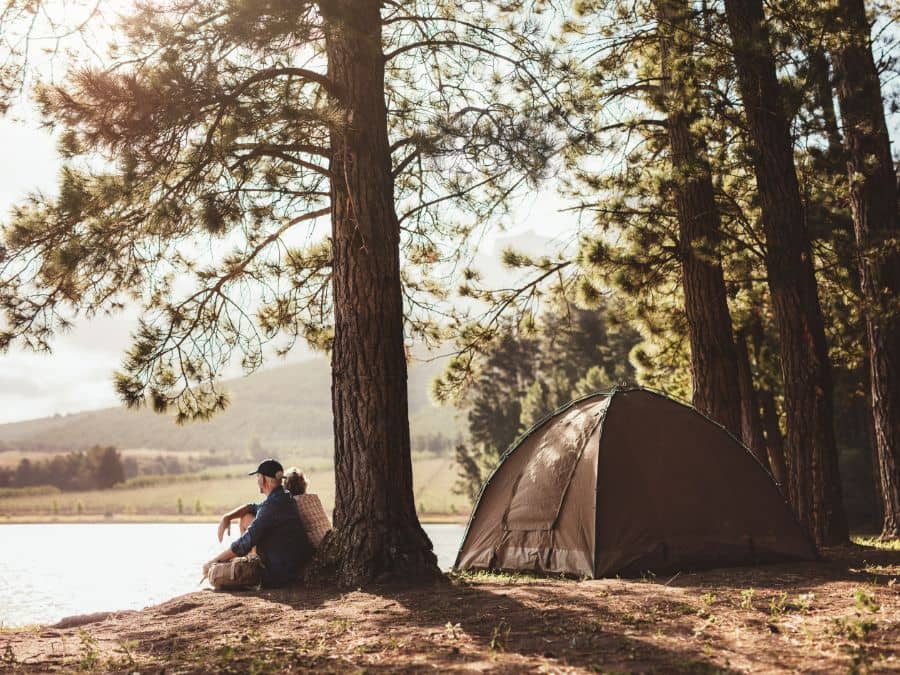
Backpackers tend to be more serious about their outdoor experiences than car campers so if you’re interested in pushing yourself physically or experiencing nature in an undisturbed manner, backpacking might be the right choice. There is no “one size fits all” solution for choosing between car camping and backpacking.
It depends entirely on your own personal preferences – whether that’s prioritizing comfort over adventure or more social interaction compared to being alone in nature. Consider these factors carefully before making your decision and don’t be afraid to try both options for a well-rounded outdoor experience!
Ultimately, both car camping and backpacking offer unique experiences that are worth trying at least once! Trying out both will not only expand on outdoor experiences but also help determine which one is more suitable for individuals’ lifestyle preferences. Whatever type of camping style appeals to you most – get out there – enjoy nature!

